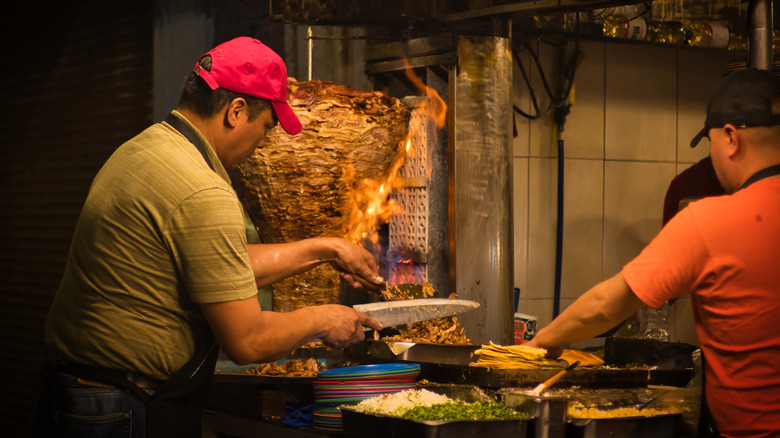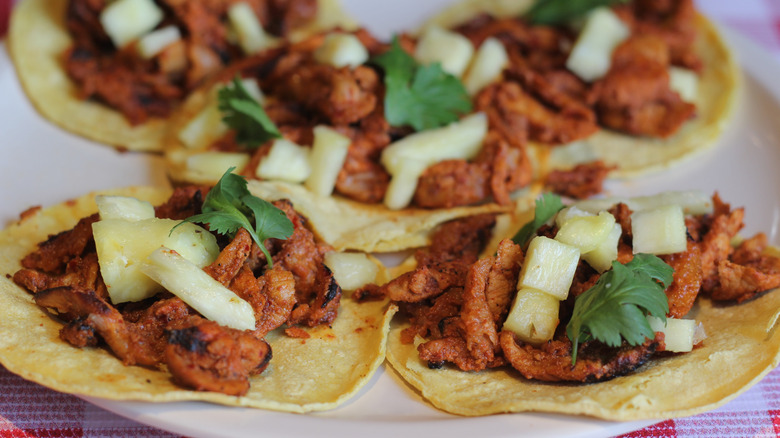The Fruit That Taco Stands Always Cook With Al Pastor
Al pastor is a true culinary delight. Spicy, sweet, smoky, fatty, and salty? Oh, my. It's incredible in a burrito, in a taco, or even on nachos. But its complex characteristics are due in large part to pineapple. If you've ever been to a taco stand or joint that serves "real" al pastor, you might notice that the pork is prepared in a way that looks a lot like shawarma. Al pastor is usually made with pork slices marinated with pineapple, chilies, and other spices that are stacked and then roasted on a vertical spit, or trompo, over an open flame. The meat is then shaved off and served in a variety of ways. (Although if you don't have a spit, like most of us, you can still make homemade al pastor tacos.)
It's not particularly clear how or why pineapple became an al pastor mainstay, and to be honest, I won't fight it. It was initially thought that the enzymes in pineapple helped break down the meat as it cooked, but they don't activate at such high temperatures. However, the Occam's razor principle would suggest that folks already knew pineapple is delicious with cooked meats and just added it to the marinade. It's that simple.
You can thank Lebanese immigrants for Al Pastor
Most historians link the popularity and rise of al pastor to Lebanese refugees that came to Mexico between 1860 and 1930 to flee the regional violence and instability after the collapse of the Ottoman Empire following World War I, when Britain and France decided to cut up and rule the Middle East. They brought with them the vertical spit that we now associate with shawarma, which had been adapted from the Turkish döner kebab, a vertical rotisserie spit used to cook stacked meat.
Eventually, this method of cooking took on regional and Mexican ingredients: Lamb gave way to pork, traditional Levantine spices became Mexican spices (like locally available chilies!), and pita bread gave way to tortillas. By the 1960s and 1970s, the dish had made its way from smaller cities like Puebla to Mexico City, where it became immensely popular. Al pastor isn't just a unique dish within Mexican cuisine; it's also a meal with a rich, intercultural history that became a beloved staple of its adopted country.

